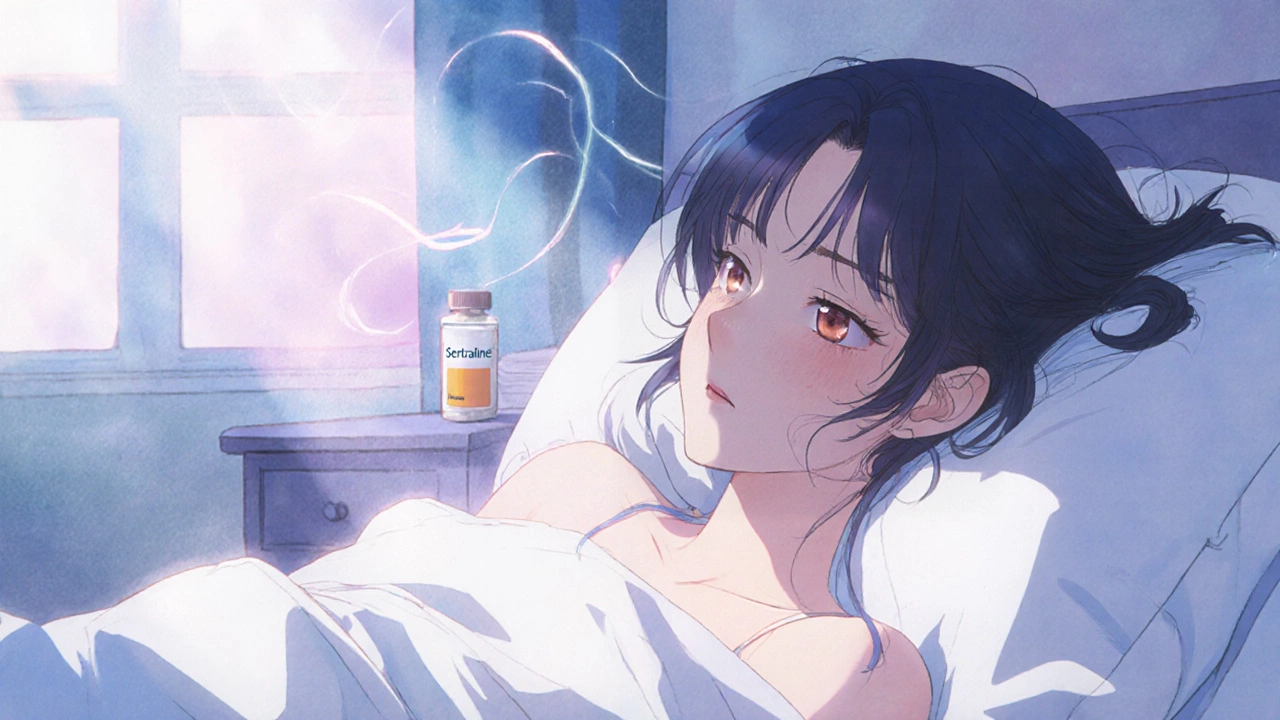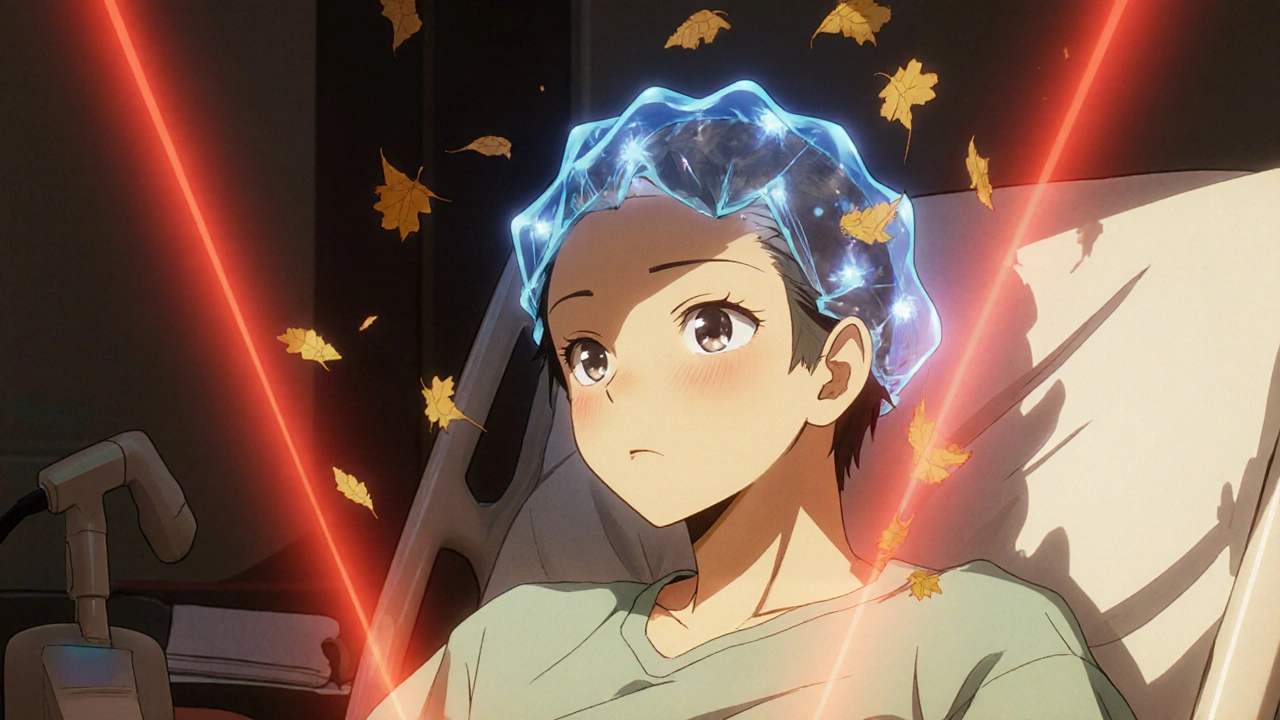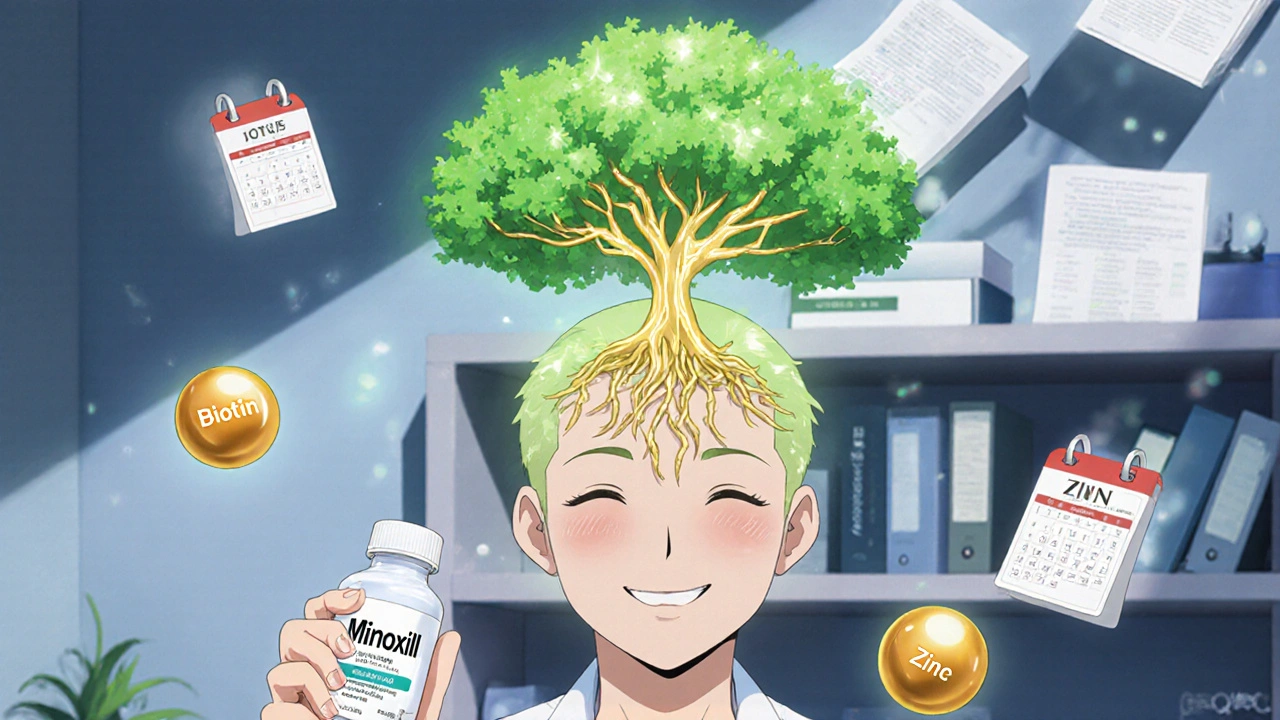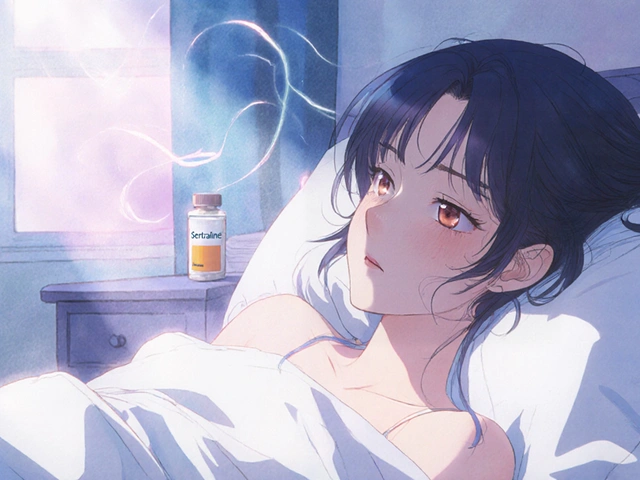
It’s not uncommon to wake up one morning and find more hair on your pillow than usual. If you’ve recently started a new medication, that’s not just bad luck-it could be your body’s reaction to the drug. Medication-induced hair loss, or drug-induced alopecia, affects nearly 4.7 million Americans every year. The good news? In most cases, it’s temporary. The even better news? You can do something about it.
How Medications Cause Hair Loss
Not all hair loss is the same. When a drug triggers shedding, it usually messes with one of two phases in your hair’s natural cycle: the growing phase (anagen) or the resting phase (telogen).Telogen effluvium is the most common type. It happens when a medication forces healthy, growing hairs into the resting phase too soon. These hairs then fall out 2 to 4 months later. Think of it like your follicles hitting a reset button. This is what you see with antidepressants, blood pressure meds, and even some arthritis drugs like methotrexate. About 1% to 10% of people on these medications experience it-some more than others, depending on genetics and dosage.
Anagen effluvium is the dramatic kind. It happens fast-within days of starting chemotherapy. The drugs don’t just slow down hair growth; they stop it cold. This is why cancer patients often lose their hair so quickly and completely. Around 65% of people on standard chemo regimens go through this. The hair doesn’t just thin-it falls out in clumps.
Which Medications Are Most Likely to Cause Hair Loss?
Some drugs are more likely than others to trigger shedding. Here’s what the data shows:- Antidepressants (like sertraline, fluoxetine): 5-7% of users report noticeable shedding
- Blood pressure meds (beta-blockers, ACE inhibitors): 1-3% risk
- Arthritis drugs (methotrexate, leflunomide): 1-10% depending on the drug
- Oral retinoids (for acne or psoriasis): up to 18% of users
- Chemotherapy drugs: up to 65% of patients experience severe hair loss
It’s important to know: you don’t lose hair because the drug is ‘bad.’ It’s just that hair follicles are among the fastest-growing cells in your body-and drugs that target fast-growing cells (like cancer cells) often hit hair follicles too.
How Long Does It Last?
Timing matters. If you’re dealing with telogen effluvium, you might not even notice the hair loss until months after starting the medication. That’s because it takes time for the follicles to shift into resting mode and then shed. Most people start shedding around the 2- to 4-month mark.Once you stop the drug, your hair cycle should reset. For telogen effluvium, regrowth usually begins within 3 to 6 months. Full recovery often takes 9 to 12 months. The Mayo Clinic reports that 85% of cases resolve on their own within 6 months after stopping the medication.
With chemotherapy, things move faster. Hair starts growing back just 3 to 6 weeks after treatment ends. But here’s the catch: the new hair might be curlier, finer, or a different color. About 38% of patients notice texture changes.

What Can You Actually Do About It?
The first step is simple: don’t panic. And don’t stop your medication without talking to your doctor. Many drugs-like antidepressants or blood pressure meds-are essential for your health. Stopping them suddenly can be dangerous.Instead, work with your provider. Ask:
- Could this drug be causing my hair loss?
- Is there an alternative with a lower risk?
- Can I adjust the dose?
If stopping the drug isn’t an option, here are the proven ways to help your hair bounce back:
1. Minoxidil (Rogaine)
This is the most widely used treatment for medication-induced hair loss. It’s available over the counter as a liquid or foam. Studies show it improves hair density by 40-50% after 6 months of consistent use. You need to apply 1 mL twice daily-once in the morning, once at night. Don’t expect results in a week. Most people see shedding in the first few weeks (that’s normal), and real growth takes 4 to 6 months.
Women usually use the 2% solution; men often use 5%. Both work. The downside? You have to keep using it. Stop applying it, and you’ll lose the gains.
2. Nutritional Support
Your hair needs fuel. If you’re low on certain nutrients, your body won’t prioritize growing hair. Dermatologists often recommend:
- Biotin: 5,000 mcg daily
- Zinc: 15 mg daily
- Iron: Only if your ferritin level is below 70 ng/mL
For people on methotrexate, taking 1 mg of folic acid daily can reduce hair loss severity by 25%. It won’t stop it completely, but it helps.
3. Low-Level Laser Therapy (LLLT)
Devices like the iRestore Elite 780 and Capillus82 are FDA-cleared medical tools. They use red light to stimulate follicles. Studies show 65-90% of users see improved density after 26 weeks. You use them for 20-30 minutes a day, every day. It’s not magic, but it’s science-backed-and it works without pills or side effects.
4. Scalp Cooling (For Chemotherapy Patients)
If you’re undergoing chemo, ask your oncologist about scalp cooling. Devices like DigniCap lower scalp temperature during treatment, which reduces blood flow to hair follicles and limits how much drug reaches them. Clinical trials show 50-65% hair retention in breast cancer patients on taxane-based chemo. It’s uncomfortable-most people rate the pain at 7.2 out of 10-but for many, it’s worth it.
What Doesn’t Work (And Why)
There’s a lot of noise out there. You’ll see ads for gummies, oils, and supplements promising miracles. Here’s what the data says:- Nutrafol: Contains marine collagen, ashwagandha, and curcumin. Amazon reviews show 4.1 stars, and 63% of users report improvement after 6 months. But it’s expensive and not regulated like medicine. It might help, but don’t expect it to replace proven treatments.
- Finasteride and dutasteride: These work great for male-pattern baldness, but they’re not FDA-approved for medication-induced hair loss. They can help if your hair loss has a hormonal component, but they come with risks-like sexual side effects. Use only under a doctor’s supervision.
- Essential oils, castor oil, onion juice: No solid clinical proof. Anecdotes abound, but science doesn’t back them up for drug-induced cases.

The Psychological Toll
Hair loss isn’t just physical. In a 2023 survey by Medical News Today, 82% of people said it hurt their self-esteem. Nearly half reported avoiding social situations. That’s real. And it’s why so many people feel desperate-even when the hair will eventually grow back.If you’re struggling emotionally, you’re not alone. Talk to a counselor. Join a support group like Reddit’s r/HairLoss (over 247,000 members). Many people there share stories of recovery after stopping antidepressants. One user wrote: “I lost 60% of my hair in 3 months. Six months after quitting Zoloft, I had a full head again. I cried when I saw it.”
When to See a Dermatologist
If your hair loss lasts longer than 6 months after stopping the medication, or if you notice patches of complete baldness, see a specialist. You might have another condition, like alopecia areata or thyroid issues.Also, if you’re on a new drug and start shedding within the first month, tell your doctor. That’s unusual for telogen effluvium and might point to something else.
Keep a journal: note when you started the drug, when shedding began, and how much you’re losing. That helps your doctor connect the dots.
Final Thoughts
Medication-induced hair loss is scary, but it’s rarely permanent. Most people get their hair back-sometimes fully, sometimes with changes in texture or color. The key is patience, the right tools, and not giving up on your health.You didn’t cause this. Your body is reacting to something meant to help you. And with the right approach, you can get your hair-and your confidence-back.



Just started sertraline last month and noticed my hair thinning around week 6. Didn’t connect the dots until I saw this post. Thanks for laying out the timeline so clearly - now I know it’s probably not permanent. Going to give minoxidil a shot and keep my doctor in the loop.
Oh my god, I KNEW it was the antidepressants. I lost like 70% of my hair and everyone was like 'just stress!' NO. It was the Zoloft. I cried every morning brushing my hair. I quit cold turkey because I couldn’t take it anymore. Now I’m on Wellbutrin and my hair is coming back - slowly, but it’s BACK. Don’t let anyone tell you it’s ‘all in your head.’
So let me get this straight… you’re telling me I can’t just take some gummy vitamins and pray to the hair gods? Who knew science was a thing? 🤡
It’s critical to emphasize that discontinuing any medication without medical supervision can result in severe rebound effects, including but not limited to: increased depressive episodes, hypertensive crises, or seizure activity. While hair regrowth is often expected, patient safety must remain the primary concern. Consultation with both a dermatologist and prescribing physician is not merely advisable-it is medically necessary.
Let’s be real-minoxidil is just glorified weed killer for your scalp. And don’t even get me started on those $500 laser caps. If you’re gonna burn cash, at least do it on something that actually makes you feel good, like a nice haircut or a wig. The hair will grow back. Your wallet won’t.
My aunt lost her hair on methotrexate-she took the folic acid like you said and it made a world of difference. Not a miracle, but she stopped looking like a bald eagle. Also, scalp cooling? That sounds like torture, but if it keeps your eyebrows… worth it. 🫠
Wait… so onion juice doesn’t work? I’ve been rubbing it in for months. My hair smells like a pub after a match, but at least I’m not bald? 😅
Look, I get it. You’re scared. You look in the mirror and see a stranger. But here’s the thing: this isn’t the end of your story. It’s just a weird, awkward chapter. I lost half my hair on beta-blockers. Took me a year. I wore beanies, I cried, I Googled ‘can hair grow back after meds’ 47 times a day. And then… one morning, I saw a tiny fuzz on my comb. And then another. And now? I’ve got more hair than I did in college. Don’t give up. It’s not pretty now. But it gets better.
Chemotherapy hair loss is brutal-but I had a 7-year-old daughter who shaved her head with me. We bought matching wigs made of real human hair. We looked like a pair of 90s rock stars. Now? Her hair’s full. Mine’s curly, silver, and I love it. Sometimes you don’t get your old hair back… but you get something better: perspective.
Let me tell you about my mate who went through chemo in Dublin. Used DigniCap. Said it felt like his scalp was being slowly frozen by a very angry ice dragon. He rated the pain at 8/10. But guess what? He kept 60% of his hair. Walked into his daughter’s school play looking like himself. That’s not magic-that’s science with guts. If you’re eligible, fight for it. Your dignity is worth the frostbite.
You’re all missing the existential point. Hair is a construct. A social performance. A biological ornament we’ve been conditioned to equate with worth. When you lose it, you don’t lose beauty-you lose the illusion that you ever controlled it in the first place. The drug didn’t take your hair. Society did. And now, in this quiet moment of shedding, you’re finally free.
So… what’s the deal with Nutrafol? I bought the whole kit. $120 a month. Tasted like chalky regret. My hair didn’t grow back. My bank account did. And now I’m just mad at myself. Can someone please tell me if I’m the only one who got scammed?
As a British gentleman with a vested interest in both medical accuracy and sartorial dignity, I must express my profound irritation at the casual dismissal of proven interventions. Minoxidil, while imperfect, remains the only FDA-cleared topical agent with peer-reviewed efficacy. To suggest that ‘hair will grow back’ without intervention is not merely optimistic-it is negligent. I have observed patients in my practice who waited six months ‘to see if it resolves’-only to develop permanent follicular miniaturization. Patience is a virtue; negligence is not. Consult a dermatologist. Do not delay. Your follicles will thank you.